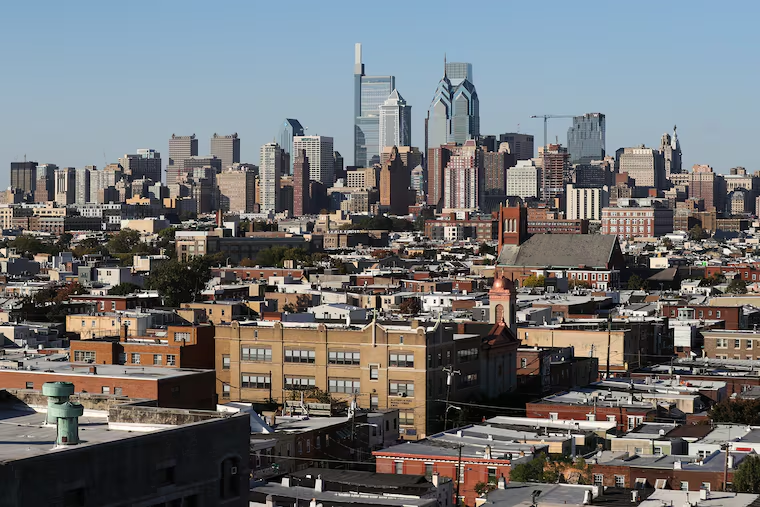Philly housing crisis looms as eviction moratorium legislation stalls in City Council
There are about 2,000 eviction cases that began before the pandemic that may move forward, Community Legal Services of Philadelphia said.

Thousands of Philadelphians could soon be at greater risk of losing their homes unless City Council members reach a consensus on reinstating an eviction moratorium.
As coronavirus cases surge, the City Council housing committee is considering bills that would enact an eviction moratorium until the end of the year while also extending rent repayment plan timelines and the ban on late fees.
But, the moratorium bill failed to advance out of committee last week because of disagreements among councilmembers about whether this legislation should apply to all renters or just those who have a COVID-19 related hardship.
Now, time is running out.
Although Philadelphia’s previous eviction moratorium lapsed on Aug. 31, courts are voluntarily pausing evictions through Nov. 8. The local bill under consideration would be in addition to the federal Centers for Disease Control and Prevention eviction moratorium, which is in place through the end of the year, but comes with complicated requirements and ambiguity.
If a moratorium is not passed and the court’s ban expires, Vikram Patel, a staff attorney in Community Legal Services of Philadelphia’s housing unit, said about 2,000 cases that began before the pandemic could move forward.
It is essential for the city to pass its own eviction legislation, Patel said, because many renters are unaware of their rights under the CDC’s federal eviction ban. An absence of new local legislation when courts reopen, Patel said, means “there will be a lot of people who should be protected who aren’t."
» READ MORE: Tenants’ rights guide: Eviction notices and the eviction moratorium
The public health effects of housing insecurity will only become more severe as the weather gets colder and coronavirus cases continue to rise. With that looming, councilmembers heard nearly four hours of testimony last week from epidemiologists, landlords, tenants, and other stakeholders about evictions and their consequences.
A “supermajority” of the housing committee supports a bill that would specify it is for renters with a COVID-19-related hardship, Councilmember Maria Quiñones-Sánchez said in an interview.
But more progressive councilmembers, including Helen Gym, a sponsor of the bill, and newcomers Jamie Gauthier and Kendra Brooks, both on the housing committee, have said that no one should be evicted during the pandemic, regardless of why they are unable to make their payments.
“The choice before us is whether thousands of families, including children who are out of school right now, single moms, veterans, people with disabilities, seniors, people who are our most vulnerable,” Gym said in an interview, “whether we are going to leave them out on the streets because they were poor before March 1.”
The CDC eviction moratorium applies to tenants who meet specific criteria including making efforts to pay what they could, completing a form for their landlords, and showing that they would end up homeless or living in a cramped housing situation if evicted. It does not require tenants prove their inability to pay rent is because of the pandemic, but rather, recognizes that evictions during a public health crisis could increase the spread of the virus.
» READ MORE: Philadelphia increases coronavirus rent relief payments
If Council passes an eviction moratorium that is more narrowly focused, there may be people who only qualify under the CDC moratorium, those who only qualify under the local one, and people who meet both requirements — which could cause confusion.
The bill as written mentions that the moratorium is being proposed because the city is in a “COVID-19 emergency period” But Quiñones-Sánchez and Councilmember Katherine Gilmore Richardson said specifying that the legislation is for those with a COVID-19 related hardship would allow the city to put federal coronavirus funds, which need to be used by the end of the year, toward the affected population.
It is a “technical amendment,” Gilmore Richardson said, “to ensure that whatever we do does not preclude anyone from receiving any direct funding or aid that is COVID-related.”
The Philadelphia Apartment Association, a landlord group, had also proposed amending the legislation to require that tenants demonstrate their inability to make rent was caused by the pandemic. Brianna Westbrooks, the group’s government affairs manager, said 70% of the city’s property owners own 10 properties or fewer. Some of those property owners, she said, have gone seven months without collecting rent, which she called unsustainable.
» READ MORE: New mortgage refinancing fee has been delayed until Dec. 1
Dametria Sanders, a tenant in a Frankford neighborhood apartment building, told councilmembers how she has lost her work as a school bus attendant and a caregiver for people with mental disabilities because of the pandemic and was at risk of eviction. She urged them to move this bill forward to help people like herself.
She alleged her landlord put an eviction notices on her door in the spring, warning that she needed to leave by the end of June. Before the pandemic, she said, she had always paid her rent on time. She said she was lucky to be a member of Renters United Philadelphia, which helped her negotiate a lease renewal, a payment plan for back rent, and be forgiven late fees.
“A lot of people are scared right now and they’re scared to come forward to demand their rights," Sanders said. “Your home makes you feel at ease and comfortable and safe. It’s not a home if you’re constantly worried about being put out in the street.”
The Philadelphia Inquirer is one of more than 20 news organizations producing Broke in Philly, a collaborative reporting project on solutions to poverty and the city’s push toward economic justice. See all of our reporting at brokeinphilly.org.